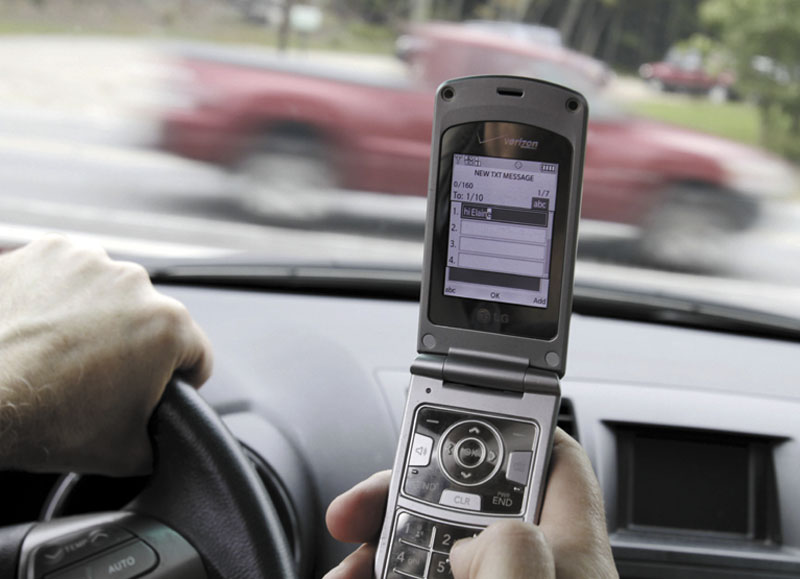Once upon a time, drinking and driving was considered a harmless vice, frowned on but socially acceptable. That was until tougher laws and a massive public information campaign alerted drivers to the deadly consequences of getting behind the wheel after even only a few drinks.
Once upon a time in our country, seat belts were seen as an uncomfortable nuisance. But as the statistics rolled in and it became clear how many deaths and serious injuries in motor vehicle accidents could have been prevented, manufacturers were forced to install seat belts in all vehicles. Still, it took tougher laws and a massive publicity campaign to get people to use them. It saved lives.
Now, with mobile communications devices, we face a new danger on the roads, and the experience from the previous public safety campaigns tells us what we have to do to combat it.
Studies show that even hands-free telephones create a significant distraction for drivers, and sending or reading a text message renders a vehicle virtually driverless for crucial seconds at a time.
In 2010, there were more than 3,000 deaths attributed to driver distraction, but the response of the driving public has been to increase the use of distracting devices. According to a National Highway Traffic Safety Administration study, drivers are texting more than ever. This is especially true of drivers from ages of 21 to 24. They tell researchers that they don’t think it’s dangerous when they do it — only when others do it.
If the texting drivers were the only ones at risk, maybe we’d be willing to say they should learn their lessons the hard way, but they are not. Their passengers and the other people unlucky enough to be on the road when they pass by are also in danger.
Maine has taken the first step by passing a law prohibiting texting while driving, but history tells us that will not be enough. It will take a massive public education campaign and the involvement of friends and family members to let these texting drivers know that their behavior is reckless and unacceptable.
The times in which a real friend would let someone climb into a car after drinking too much are long gone. The time when we tolerate texts from our driving friends and relatives should be behind us as well.
Send questions/comments to the editors.



Success. Please wait for the page to reload. If the page does not reload within 5 seconds, please refresh the page.
Enter your email and password to access comments.
Hi, to comment on stories you must . This profile is in addition to your subscription and website login.
Already have a commenting profile? .
Invalid username/password.
Please check your email to confirm and complete your registration.
Only subscribers are eligible to post comments. Please subscribe or login first for digital access. Here’s why.
Use the form below to reset your password. When you've submitted your account email, we will send an email with a reset code.